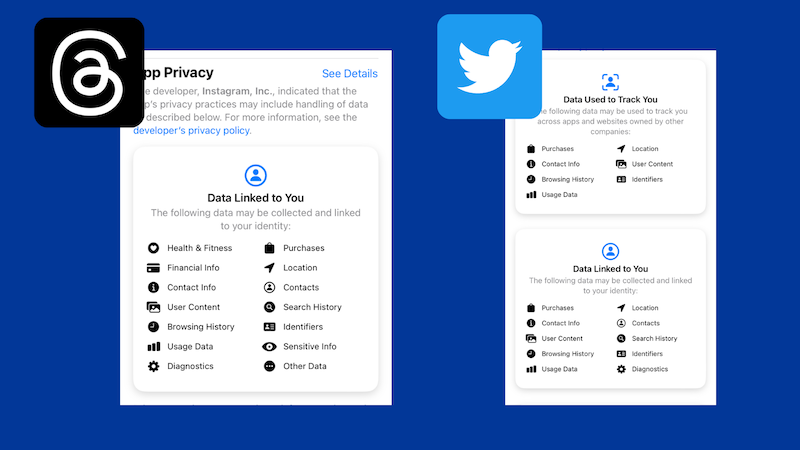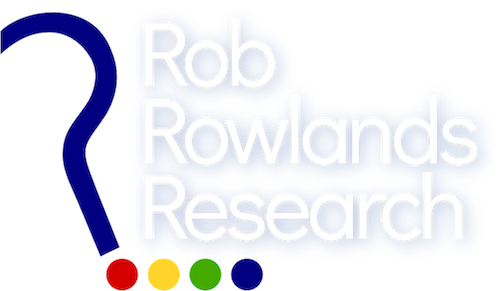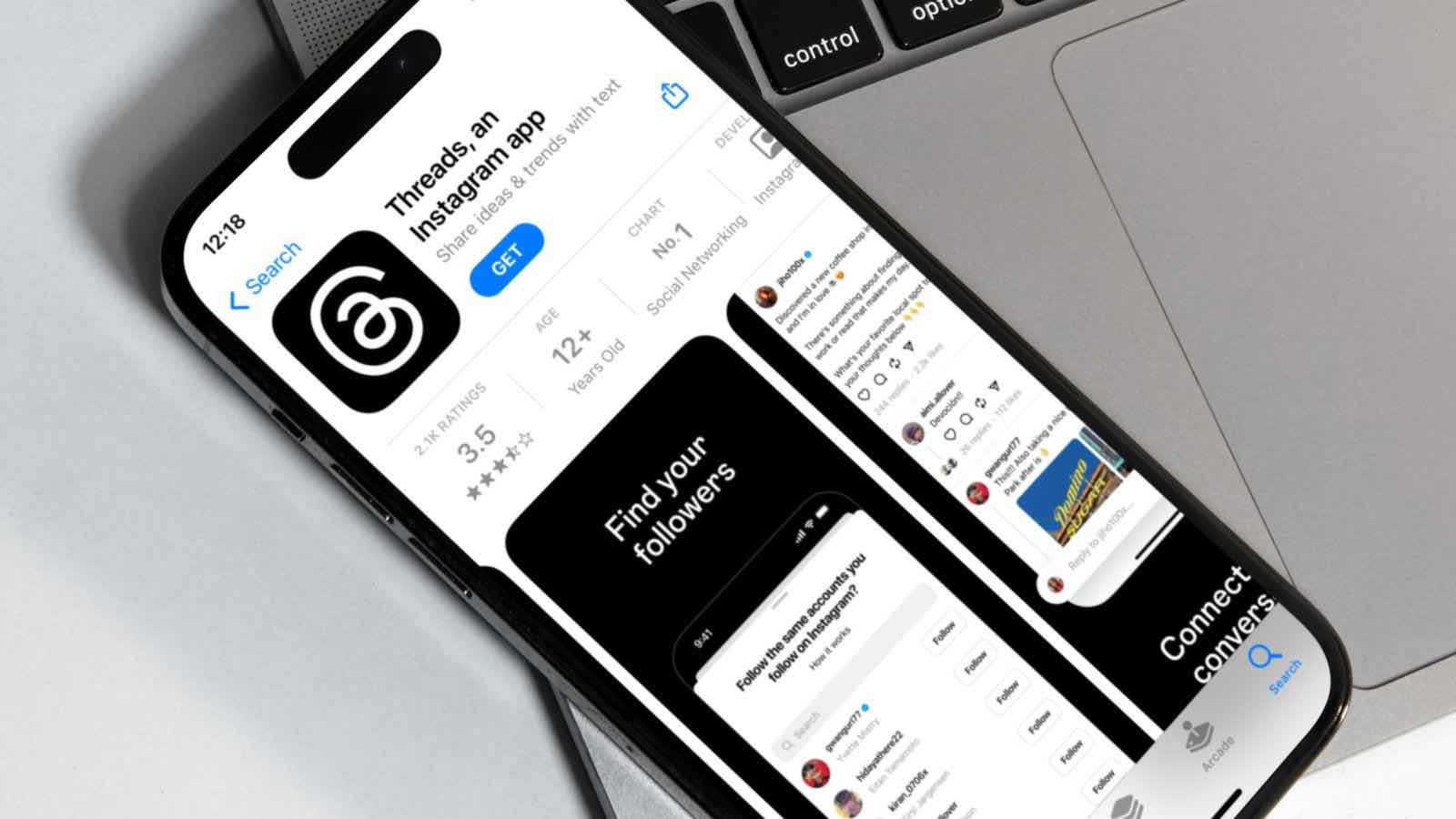With the increasing ease yet low cost to collecting and capturing more and more data, it is easy to lose sight of its purpose. Yet without a clear understanding of what that data can do or what you can do with it, it quickly becomes meaningless and often a burden.
The privacy thread
For several months increasingly vocal elements of the Twitter user base had raised concerns about their platform’s utility. When Meta’s new Twitter rival dropped on 5th July 2023 there was a clamour by many to jump on board.
Yet amongst the fanfare of Threads arrival has been a concern about its data privacy. Potential users baulked at the amount and type of data linked to the user by Meta. In these days of data leaks and misuse the concern can be understood.
As the illustration shows, the Threads app links a lot of data to the user. But then, so does the Twitter app where some of the Threads privacy concerns have been expressed.

The important question here is what exactly do Meta need this data for? What is it going to do with it.
We know that in the past they have sold similar data to third parties for sometimes questionable purposes. And for a company whose main purpose is data processing it is likely they can use the data in a variety of ways.
The problem for the user is that the privacy policies that accompany these apps are written in far from plain English. What the data will be used for, if at all, is rather opaque.
For the end user the concerns are about the threads of data.
The process thread
Some of you might be wondering what this has got to do with the work you do.
Let me give you a different example. A Director of Housing at a medium sized housing association was recently telling me about the application process for potential tenants.
The application form, he told me, was 6 pages long and asked for timely information such as the age of household members, health issues and specific needs.
Whilst on the face of it this might appear to be a logical request in order to fit the applicant with the most appropriate home, the time many people wait for a home often means much of this data is out of date before it is of relevance.
The director had a solution. Ask only for the details needed to put the person on the waiting list and ask the specifics at the time when a property becomes available. And even then, some of the information previously asked for only becomes of relevance once they become a tenant.
The legal thread
There are many times when accumulating data in one go feels like the most efficient and effective step.
As a research manager of large European projects I regularly had to reign in researchers’ desire to ask more and more questions of a captive audience because the questionnaires become too long and the response rate too low.
Less is quite literally more when it comes to insights. But it needs to be a purposeful less.
It also needs to be a legally purposeful less.
Despite Brexit, GDPR remains as applicable today and places an important onus on the collectors of data to be specific about what the data will be used for.
Whilst many a client of mine has looked downbeat or bemoaned this requirement, it is actually a blessing in disguise.
Put simply, GDPR requires you to:
- What purpose you will be using the data provided for
- How and where it will be stored
- How long it will be retained for.
Rather than a burden, it is a framework to only collect what you need, when you need it and getting rid of it (securely of course) once it is used.
What you need to be clear on is the purpose for collecting the data in the first place.
What is your thread?
However you chose to consume information, understanding the purpose you are collecting and using it for is critical.
Clear purpose gives you the structure you need to use the information most effectively.
And crucially gives greater confidence to those who you rely on to provide it to you to give it more freely.
So whether you are big tech or a small business always ask why am I collecting this information and what am I going to do with it. If there isn’t a clear thread between the information you are asking for and what you intend to do with it, don’t bother collecting it.
You may also be interested in
Thought, inspiration and how-to straight in your inbox - Sign up today
By subscribing you will receive our newsletter up to 4 times a year and occasional news of forthcoming events. You can unsubscribe at anytime.





